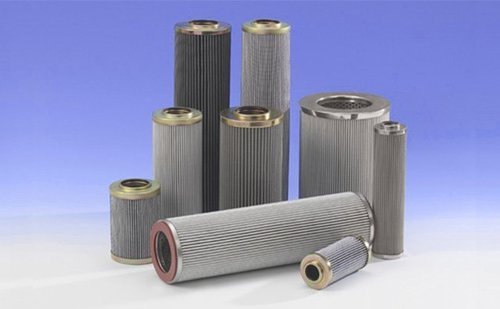The Best Hydraulic Filters are a vital component of your machine. They’re used to clean up the fluid that is pumped through it, so they’re important in several ways. Filters protect other components from debris, wear and tear on the machine, and they keep the fluid flowing smoothly through all parts of the system.
So when should you change your hydraulic filter?
– Excessive noise
The first sign that your hydraulic filters need replacing is excessive noise. As the air gets into the system, it causes a gurgling sound and sometimes loss of pressure, which can result in issues like low flow and increased wear.
If you’re hearing an unusual amount of noise coming from your machine or vehicle’s hydraulics, try checking the hydraulic filter first. If this doesn’t help or if you aren’t sure how to locate it, we recommend taking your car or truck to a professional mechanic who can inspect it for signs of damage and replace any necessary parts.

– Loss of Flow or Pressure
A loss of flow or pressure is a common indicator that your hydraulic filters need to be changed. If you notice a drop in either one, the hydraulic fluid will not be able to get through the system as easily. This can cause serious damage to your equipment, so it’s important to address this issue immediately.
When you experience a significant loss of flow or pressure with no other external causes present (such as an air leak), changing your hydraulic filter should solve the issue. If changing one filter doesn’t solve the problem, then it’s possible that you’re experiencing multiple issues at once — it might be time for more serious repairs instead!
– Clogging of the filters
Clogging of the filters is the most common reason for changing hydraulic filters. Clogging can be caused by:
- Hydraulic oil
- Dirt
- Water (from rain or poor drainage) and other contaminants.
Filters should be changed at regular intervals, depending on how often your equipment is used, and how dirty its environment is.
– Operational problems
Hydraulic filters can be used to detect operational problems in your equipment. When the filter is clogged and the pressure gauge reads zero, it means that there is a restriction in the system. This might be caused by an air bubble or an empty hydraulic tank, which would result in loss of pressure. Loss of flow through the filter will also cause a loss of hydraulic fluid level.
In some cases, this may mean that you need slightly more time than usual when performing operations such as changing gears or engaging brakes—but any other symptom like those listed above could indicate a problem with your hydraulics system!
– Excessive leakage
If you find that your hydraulic filters are leaking, it’s time to replace them. Excessive leakage may indicate a damaged seal or gasket, which will make the filter less effective.
If the seals on your hydraulic filters have deteriorated, they can start to leak oil into the machine. This can damage components and cause other problems with your equipment as well as lead to unsafe conditions for workers who are using it. To determine whether or not this is happening in your machine:
- Look for signs of oil leaking around the top of the filter housing (or any other part where there’s an opening for a filter). If you see any sign of leakage at all, consider replacing your old filters immediately.
- Check each individual filter by removing it from its housing and holding it up against light from above so that light shines through its holes—if there’s any visible oil residue left behind anywhere around those holes (or anywhere else), replace those filters too!
Conclusion
In conclusion, it is important to know when to change your hydraulic filters. The signs of clogging can be difficult to detect, and they may lead to unexpected consequences if you fail to act in time. For example, excessive noise may indicate that there is an issue with the pressure of your pump or engine. You should also always keep an eye out for leaks and make sure they don’t get worse over time

